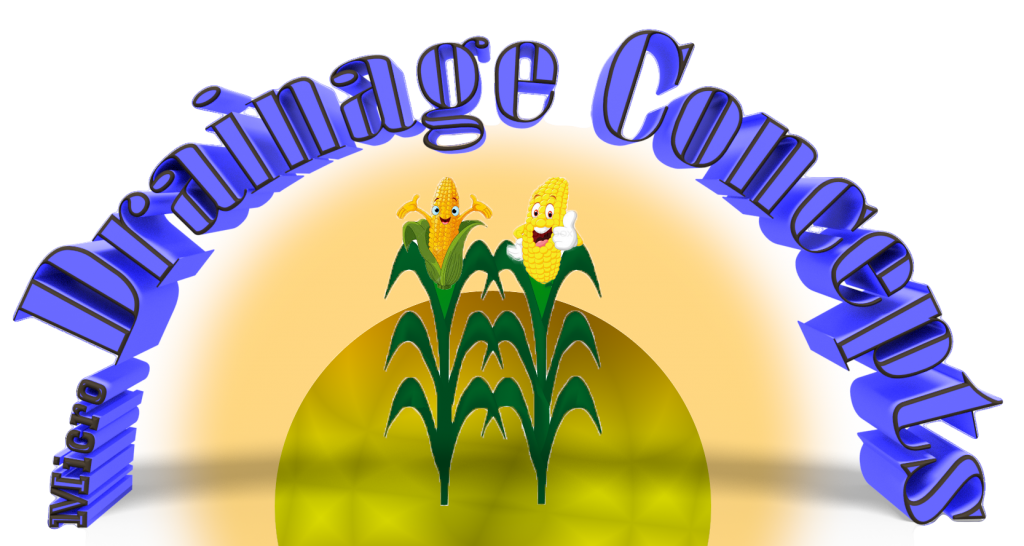Blog Layout
The Pros and Cons of No-Till Farming
admin • March 7, 2019

The Pros and Cons of No-Till Farming
So you are thinking of making a change but want to weigh your options? Well here is the bottom line.
Advantages
- Reducing fuel, labor, and equipment costs are the biggest benefits of not doing any tillage. The price of diesel alone is something to consider. That’s also fewer hours on a tractor meaning more value at trade-in time, and less wear and tear on tillage tools.
- Improved soil structure is another big benefit. Tillage disrupts the natural structure of soil and disperses some of the carbon that it needs into the air. No Till means you are keeping more of the nutrients your soil desperately needs right where it belongs
- Erosion can be reduced by leaving more residue on the surface in the months when there are no crops growing. Allowing the rain or melting snow to not run off, but instead work its way down into your soil bringing beneficial nutrients into it.
- Minimizing the compaction of your soil. Soil gets compacted any time equipment drives over the surface. This means the air and water pockets present in soil that allow for the movement of water, crop roots, and soil organisms get squeezed out by the weight of the equipment. Since no-till reduces the amount of equipment used, the threat of compaction is reduced.
Disadvantages
- With no-till a farmer has lost the ability to mechanically control weeds through tillage.
- There is a risk of carrying over plant diseases when crop residue is not incorporated into the soil after harvest. This can act as a host for disease and can infect the following crop. However, farmers can combat this situation by rotating crops that are not susceptible to the same diseases.
- It takes time to see the benefits of no-till. One can’t take a farm that has been tilled for 50 years or more and hope to see big gains in yield after one season. Patience is important. Soil needs time to regain structure, and that doesn’t happen overnight.
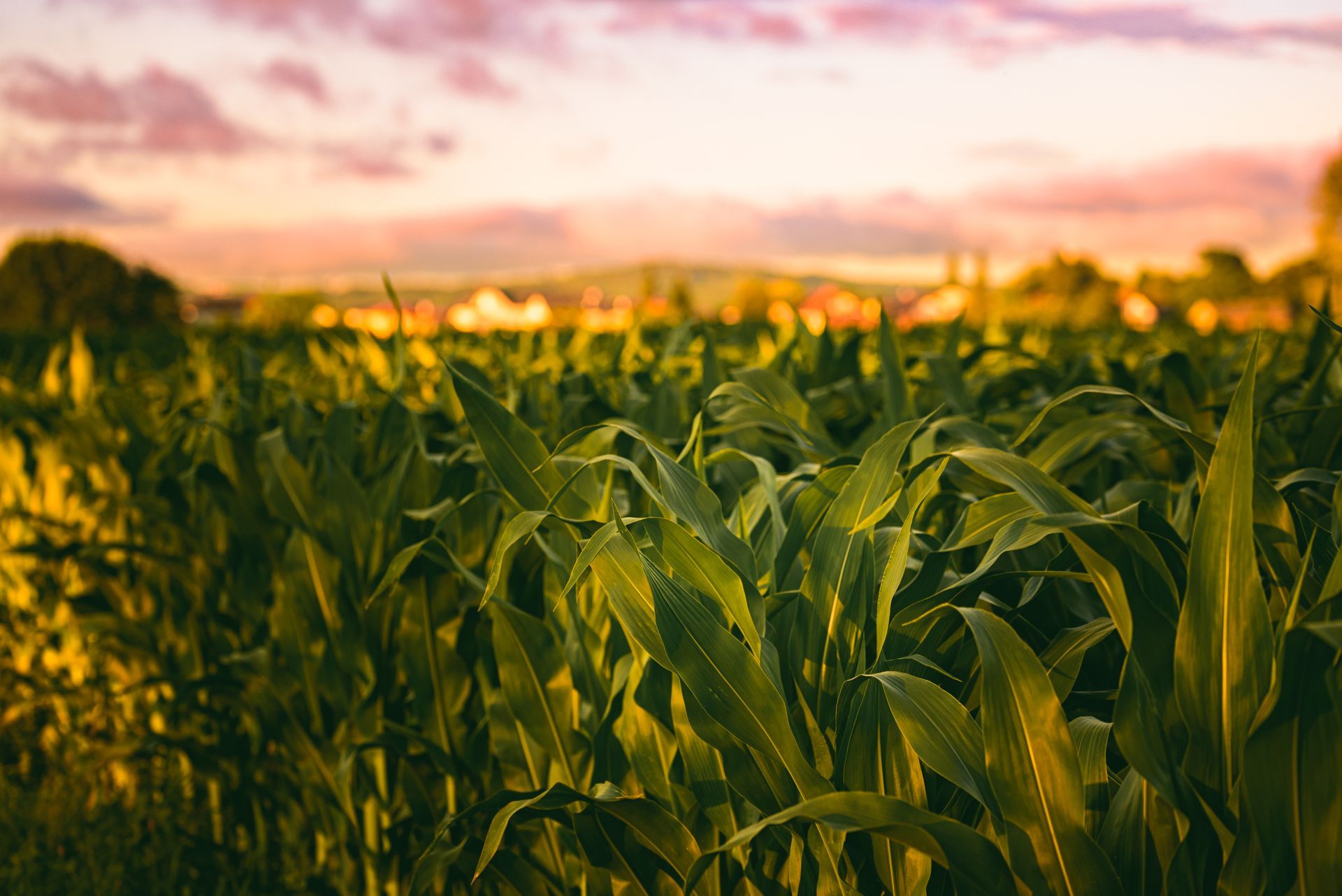
By Katie Schupp
•
March 28, 2025
Spring is on the horizon, and for diligent farmers, that means it's time to finalize preparations for the upcoming growing season. Effective water management in agriculture is crucial for healthy crops and optimal yields, and now is the time to ensure your fields are equipped to handle the challenges of the 2025 season. Richland Micro Drainage offers innovative drainage solutions and expert guidance to help you achieve peak performance and maximize your farm's potential. The Importance of Improving Water Management in Farming Water is the lifeblood of any agricultural operation, but its abundance or scarcity can significantly impact your success. Excess water can lead to waterlogged soil, hindering root development, delaying planting, and ultimately reducing yields. On the other hand, inadequate water availability can stress crops and limit their potential. Improving water management in farming involves finding the perfect balance – ensuring that your crops have access to the moisture they need, while preventing excess water from causing damage. This is where Richland Micro Drainage comes in. Drainage Solutions Tailored to Your Needs Richland Micro Drainage specializes in micro drainage systems, a cutting-edge approach to water management that utilizes strategically placed drain tiles to efficiently remove excess water from the root zone. Our systems are designed to: Promote Healthy Soil: By preventing water logging and promoting aeration, micro drainage fosters a thriving soil ecosystem, leading to healthier crops and increased yields. Minimize Erosion: Efficient drainage reduces the risk of soil erosion, protecting valuable topsoil and preventing nutrient runoff. Enhance Sustainability: Micro drainage promotes sustainable farming practices by optimizing water use and reducing the need for excessive irrigation. Don't Wait for the Rains to Come Proactive planning is essential for effective water management. Don't wait until your fields are saturated to address drainage issues. Now is the time to assess your needs and implement solutions that will ensure a successful growing season. Richland Micro Drainage offers a comprehensive range of services to help you optimize your water management: Site Assessment: Our experts will evaluate your land, considering factors such as soil type, topography, and cropping patterns, to design a customized drainage system that meets your specific needs. System Design: We utilize advanced technology and engineering expertise to create efficient and effective drainage solutions. Installation: Our skilled contractors will install your drainage system with minimal disruption to your fields, ensuring a smooth and timely process. Invest in Your Farm's Future Effective water management is an investment in the long-term success of your farm. By optimizing your drainage now, you're setting the stage for healthy crops, increased yields, and a more sustainable operation. Contact Richland Micro Drainage today to learn more about our drainage solutions and how we can help you achieve your farming goals for the 2025 growing season and beyond.

By Katie Schupp
•
March 21, 2025
No-till farming is a sustainable agricultural practice that offers numerous benefits for soil health, the environment, and farmers' bottom lines. By minimizing soil disturbance, no-till farming promotes a thriving soil ecosystem, enhances water infiltration, and reduces erosion. Richland Micro Drainage recognizes the value of no-till farming and provides drainage solutions that optimize its benefits. Benefits of No-Till Farming for Soil Health No-till farming preserves the natural structure of the soil, protecting its valuable topsoil and promoting a healthy balance of microorganisms. This leads to: Improved Soil Structure: Undisturbed soil maintains its natural aggregates and pore spaces, improving water infiltration and aeration, which are crucial for healthy root development and microbial activity. Increased Organic Matter: No-till farming allows crop residues to decompose on the soil surface, adding organic matter that enhances soil fertility and water-holding capacity. Enhanced Biodiversity: A healthy soil ecosystem supports a diverse range of organisms, from earthworms to beneficial fungi and bacteria, which contribute to nutrient cycling and disease suppression. No-Till Benefits for Farmers Beyond soil health, no-till farming offers several advantages for farmers: Reduced Labor and Fuel Costs: Eliminating tillage operations saves time and fuel, reducing overall production costs. Improved Water Conservation: Healthy soil with increased organic matter retains water more effectively, reducing the need for irrigation and conserving water resources. Increased Yields: While it may take time for the benefits to fully materialize, no-till farming can lead to increased yields due to improved soil health and nutrient availability. Environmental Stewardship: No-till farming reduces greenhouse gas emissions, protects water quality, and promotes biodiversity, contributing to a more sustainable agricultural system. Best Practices for No-Till Farming and Drainage Successful no-till farming requires careful attention to water management. Richland Micro Drainage offers solutions that address the unique drainage needs of no-till systems: Micro Drainage Systems: Our micro drainage systems utilize strategically placed drain tiles to efficiently remove excess water from the root zone, preventing water logging and promoting healthy root development. Surface Drainage: We also offer surface drainage solutions to manage excess water on the soil surface, minimizing erosion and protecting valuable topsoil. Cover Crops: Cover crops are a valuable tool in no-till systems, further enhancing soil health and water management. Richland Micro Drainage can help you integrate cover crops into your no-till operation for optimal results. Richland Micro Drainage: Your Partner in No-Till Success Richland Micro Drainage is committed to supporting farmers who adopt no-till practices. Our drainage solutions and expertise in soil health can help you maximize the benefits of no-till farming, leading to improved soil quality, increased yields, and a more sustainable agricultural operation. Contact us today to learn more about how we can help you implement best practices for no-till farming and drainage.
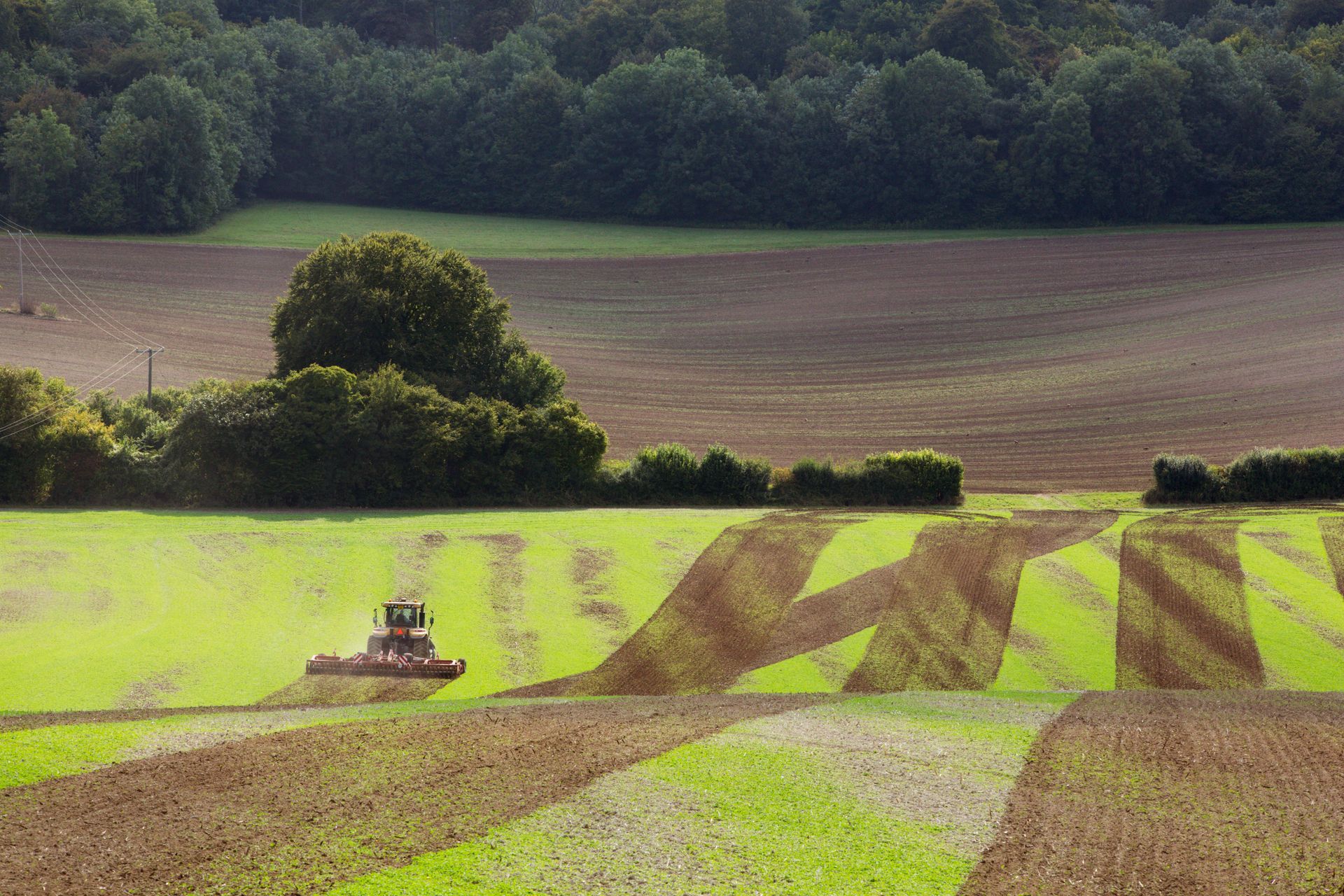
By Katie Schupp
•
March 14, 2025
Organic farming is a rapidly growing sector of agriculture, emphasizing sustainable practices that promote soil health, biodiversity, and environmental stewardship. While organic farmers prioritize natural methods, they also recognize the importance of efficient water management for optimal crop production. Richland Micro Drainage offers precision drainage systems that align perfectly with organic farming principles, providing a range of benefits for both the environment and the farm's bottom line. Best Micro Drainage Solutions for Organic Agriculture One of the key challenges in organic farming is maintaining optimal soil moisture levels without relying on synthetic fertilizers and pesticides. Excess water can lead to nutrient leaching, soil compaction, and disease outbreaks, while insufficient water can stunt plant growth and reduce yields. Richland Micro Drainage's micro drainage systems offer the best solution for managing water in organic farming. Our systems utilize strategically placed drain tiles to efficiently remove excess water from the root zone, preventing water logging and promoting healthy soil conditions. This allows organic farmers to: Enhance Soil Nutrition: By preventing nutrient leaching, micro drainage helps maintain optimal soil fertility, reducing the need for synthetic fertilizers. Improve Crop Yields: Healthy, well-drained soil supports vigorous plant growth, leading to increased yields and improved profitability for organic farmers. Promote Environmental Stewardship: Efficient water management minimizes runoff and protects water quality, aligning with the core values of organic agriculture. Benefits of Precision Drainage Systems for Farmers Richland Micro Drainage's precision drainage systems offer a tailored approach to water management, ensuring that your organic farm receives the optimal drainage solution for its unique needs. Our systems are designed to: Minimize Soil Disturbance: Installation of our micro drainage systems involves minimal soil disturbance, preserving the soil structure and beneficial microbial communities that are essential for organic farming. Optimize Water Levels: Our systems efficiently remove excess water while maintaining adequate moisture levels for optimal crop growth. Enhance Sustainability: By promoting efficient water use and reducing the reliance on synthetic inputs, our micro drainage systems contribute to the long-term sustainability of organic farming operations. Richland Micro Drainage: Your Partner in Organic Farming Success Richland Micro Drainage understands the unique challenges and opportunities of organic farming. Our micro drainage solutions are designed to complement your organic practices, enhancing soil health, improving yields, and promoting environmental stewardship. Contact us today to learn more about how our precision drainage systems can benefit your organic farm and help you achieve your goals of sustainable and productive agriculture.
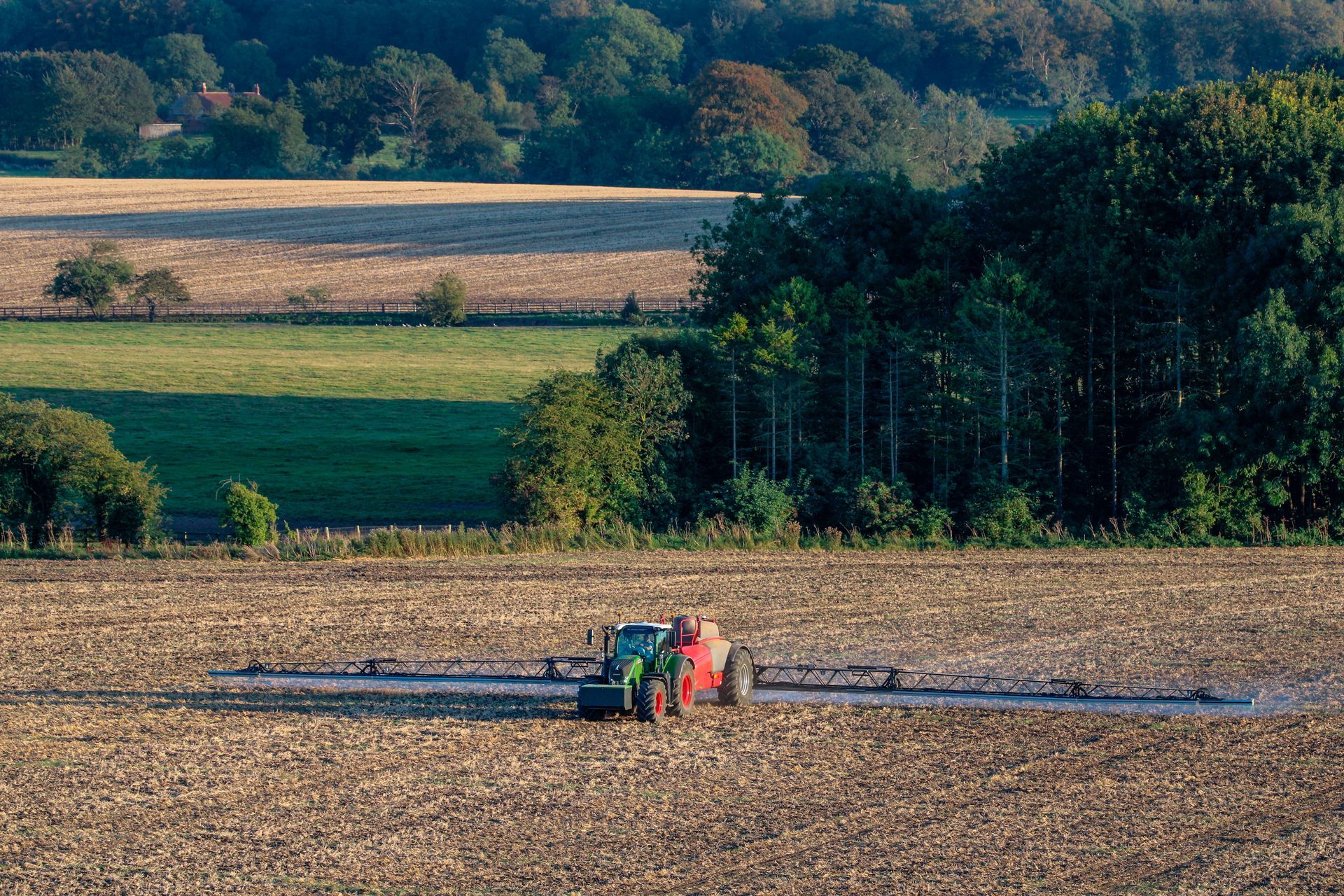
By Katie Schupp
•
March 7, 2025
National Agriculture Day, observed annually in March, provides a special opportunity to recognize and celebrate the vital contributions of farmers across the nation. Here in Ohio, agriculture plays a crucial role in our economy and our way of life. Richland Micro Drainage proudly salutes the hardworking farmers of Ohio and the Midwest who dedicate themselves to feeding our communities and stewarding our land. Agriculture in Ohio: A Legacy of Stewardship Ohio boasts a rich agricultural heritage, with a diverse landscape that supports a wide range of crops and livestock. From the fertile fields of the Corn Belt to the rolling hills of Appalachia, Ohio farmers produce an abundance of food, fiber, and fuel that sustains our state and beyond. National Agriculture Day is a time to reflect on the dedication, innovation, and resilience of Ohio's farmers. They face numerous challenges, from unpredictable weather patterns to fluctuating market prices, yet they persevere, ensuring that our tables are full and our communities thrive. Richland Micro Drainage: Supporting Ohio Agriculture Richland Micro Drainage is deeply rooted in the agricultural community of Ohio. We understand the unique needs and challenges faced by our local farmers, and we strive to provide solutions that enhance their operations and contribute to their success. Our micro drainage systems offer a prime example of this commitment. By optimizing water management and promoting soil health, our drainage solutions help Ohio farmers maximize their yields, conserve resources, and protect the environment. Honoring Farmers on National Agriculture Day This National Agriculture Day, Richland Micro Drainage extends our sincere gratitude to the farmers of Ohio and the Midwest. Your hard work, dedication, and passion for agriculture are an inspiration to us all. We encourage everyone to take a moment to appreciate the vital role that farmers play in our lives. Support your local farmers by purchasing their products, visiting their farms, and advocating for policies that support a thriving agricultural sector. Continuing the Legacy of Agriculture in Ohio As we celebrate National Agriculture Day, (March 18th) let us also look to the future. By supporting sustainable farming practices, investing in innovative technologies, and fostering the next generation of farmers, we can ensure that agriculture in Ohio continues to thrive for generations to come. Richland Micro Drainage is proud to be a part of this journey. We remain committed to providing Ohio farmers with the tools and resources they need to succeed, ensuring a bright future for agriculture in our state.
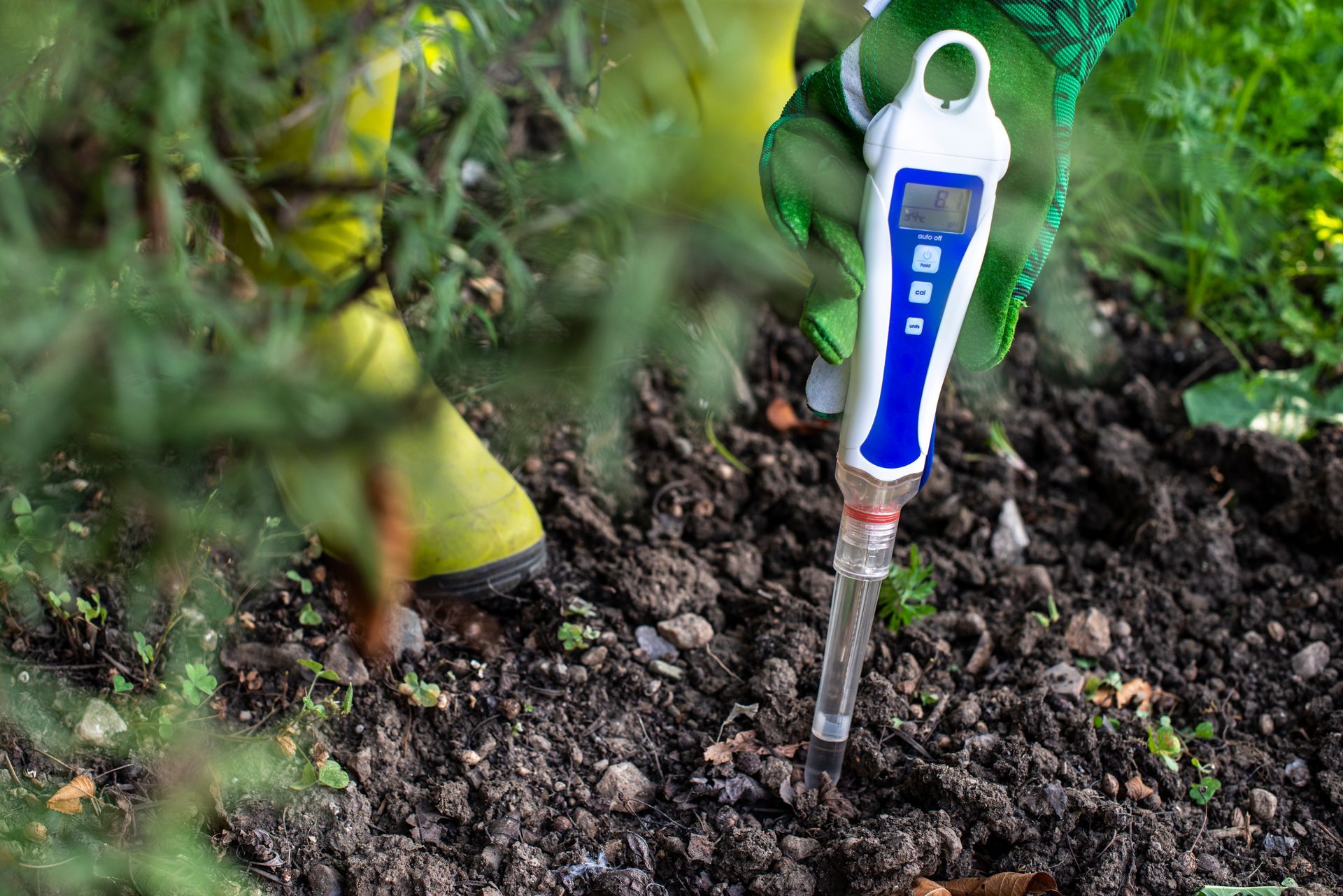
By Katie Schupp
•
February 28, 2025
February may seem a bit early to be thinking about spring planting, but proactive planning and preparation are essential for a successful growing season. This month offers a valuable opportunity to conduct soil testing, fine-tune your precision agriculture strategies, and ensure your equipment and supplies are ready for action. Richland Micro Drainage understands the importance of early preparation and offers solutions and guidance to help you get a jumpstart on your spring planting’s success. Soil Testing: Know Your Foundation Conducting soil tests in February provides crucial insights into the health and nutrient levels of your fields. This information allows you to tailor your fertilizer and amendment applications, ensuring optimal nutrient availability for your crops. Soil testing also helps you identify potential issues like soil acidity or nutrient imbalances, allowing you to take corrective measures before planting. Precision Agriculture: Optimizing Your Approach Precision agriculture leverages technology and data to optimize farm management practices. February is an ideal time to review and refine your precision agriculture strategies. Analyze yield data from previous seasons, evaluate your crop rotation plans, and consider incorporating new technologies like GPS-guided planting to enhance efficiency and productivity. Spring Planting Preparation Checklist Here's a checklist of essential tasks to tackle in February: Order Seeds and Supplies: Ensure you have the necessary seeds, fertilizers, and other supplies on hand well in advance of planting season. Inspect and Maintain Equipment: Take the time to service your tractors, planters, and other equipment to ensure they are in top working order for the busy spring season. Plan Your Crop Rotation: Crop rotation is a key practice for maintaining soil health and preventing pest and disease buildup. Finalize your rotation plan for the upcoming season, considering factors such as crop compatibility and nutrient requirements. Calibrate Planting Equipment: Accurate planting depth and spacing are crucial for optimal crop emergence and yield. Calibrate your planting equipment to ensure it's operating correctly. Assess Drainage Needs: Evaluate your fields for any drainage issues that may need to be addressed before planting. Richland Micro Drainage offers micro drainage solutions that improve soil health and optimize water management for a successful growing season. Richland Micro Drainage: Your Partner in Spring Planting Preparation Richland Micro Drainage understands the importance of early preparation for a successful spring planting season. Our micro drainage systems and expert guidance help you optimize your soil health and water management strategies, setting the stage for a productive and profitable year. By taking a proactive approach to soil testing, precision agriculture, and equipment maintenance, you ensure that your farm is well-prepared for the challenges and opportunities of the upcoming growing season. Contact Richland Micro Drainage today to learn more about how our solutions help you achieve your farming goals.
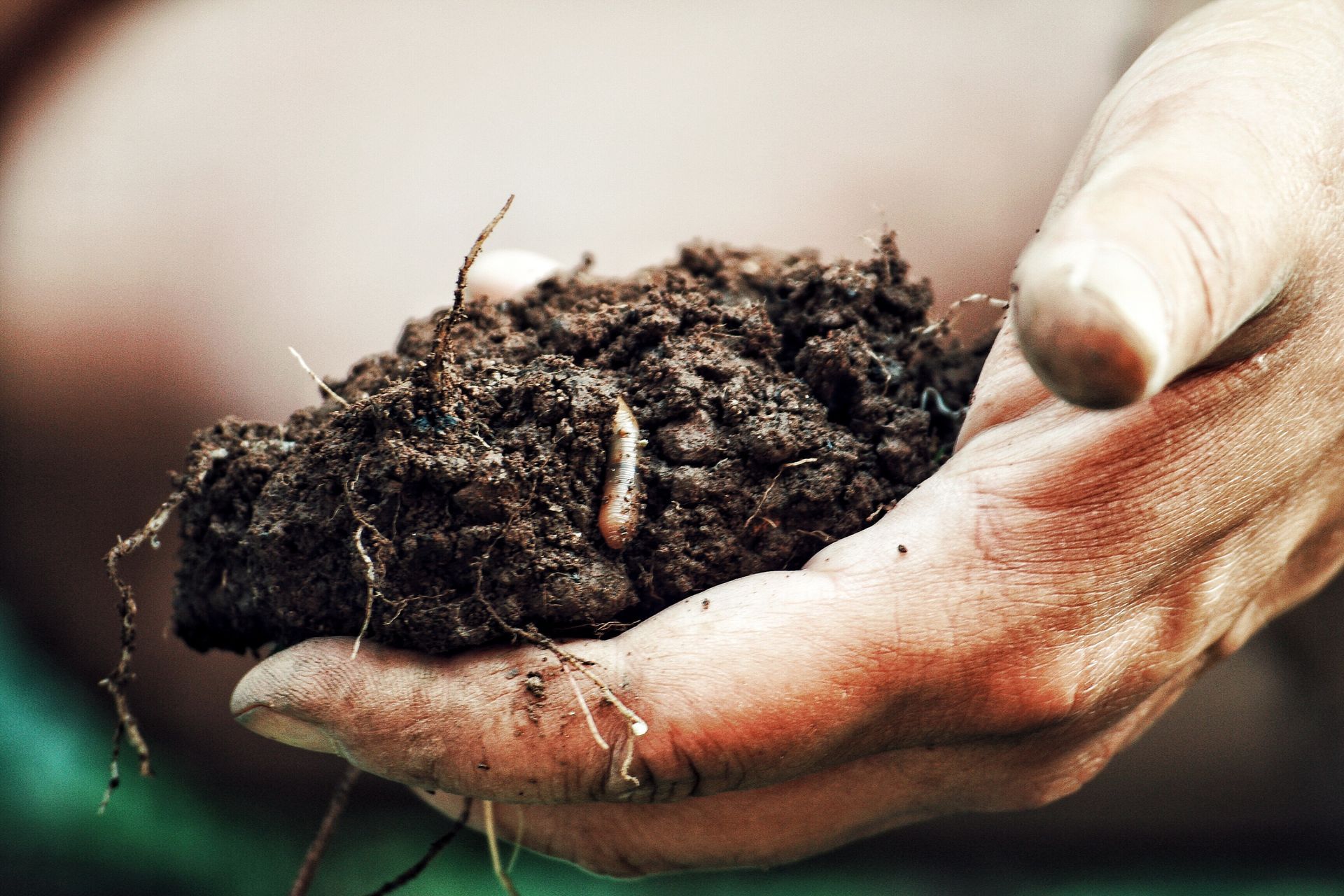
By Katie Schupp
•
February 21, 2025
Nutrient management is a critical aspect of successful and sustainable agriculture. By optimizing the availability and utilization of essential nutrients, farmers enhance soil health, increase crop yields, and minimize environmental impact. Richland Micro Drainage (RMD) understands the importance of nutrient management and offers solutions that empower farmers to implement effective soil management practices. Effective nutrient management involves a multi-faceted approach that considers factors such as soil type, crop requirements, and environmental conditions. RMD's micro drainage systems play a key role in this process by optimizing water management and promoting healthy soil conditions. How Micro Drainage Enhances Nutrient Management Reduced Nutrient Loss: Excess water in the soil leads to nutrient leaching, where valuable nutrients like nitrogen and phosphorus are washed away from the root zone. Micro drainage systems efficiently remove excess water, minimizing the risk of nutrient loss and ensuring that essential nutrients remain available to crops. Improved Nutrient Uptake: Healthy soil structure and optimal moisture levels are crucial for efficient nutrient uptake by plants. Micro drainage promotes these conditions by preventing water logging and enhancing aeration, allowing roots to access nutrients more effectively. Enhanced Soil Health: Healthy soil is the foundation of effective nutrient management. Micro drainage contributes to soil health by promoting the growth of beneficial microorganisms that play a crucial role in nutrient cycling and availability. Soil Management Practices for Optimal Nutrient Utilization In addition to micro drainage, RMD promotes a variety of soil management practices that enhance nutrient management: Cover Cropping: Cover crops help to scavenge excess nutrients, preventing them from leaching into waterways and improving soil fertility for subsequent crops. Reduced Tillage: Minimizing soil disturbance helps to preserve soil structure and protect beneficial soil organisms that contribute to nutrient cycling. Precision Agriculture: Utilizing technologies like soil testing and data research helps optimize nutrient use and minimize waste. Yield Increase through Effective Nutrient Management By implementing effective nutrient management practices, farmers achieve significant yield increases. Healthy soil, optimized nutrient availability, and efficient water management all contribute to healthier, more productive crops. This translates to increased profitability and a more sustainable farming operation. RMD: Your Partner in Nutrient Management Richland Micro Drainage is committed to supporting farmers in their pursuit of sustainable and productive agriculture. Our micro drainage solutions, combined with our expertise in soil management practices, empower you to optimize nutrient utilization, enhance soil health, and achieve significant yield increases. Contact us today to learn more about how RMD helps you implement effective nutrient management strategies and unlock the full potential of your farmland.
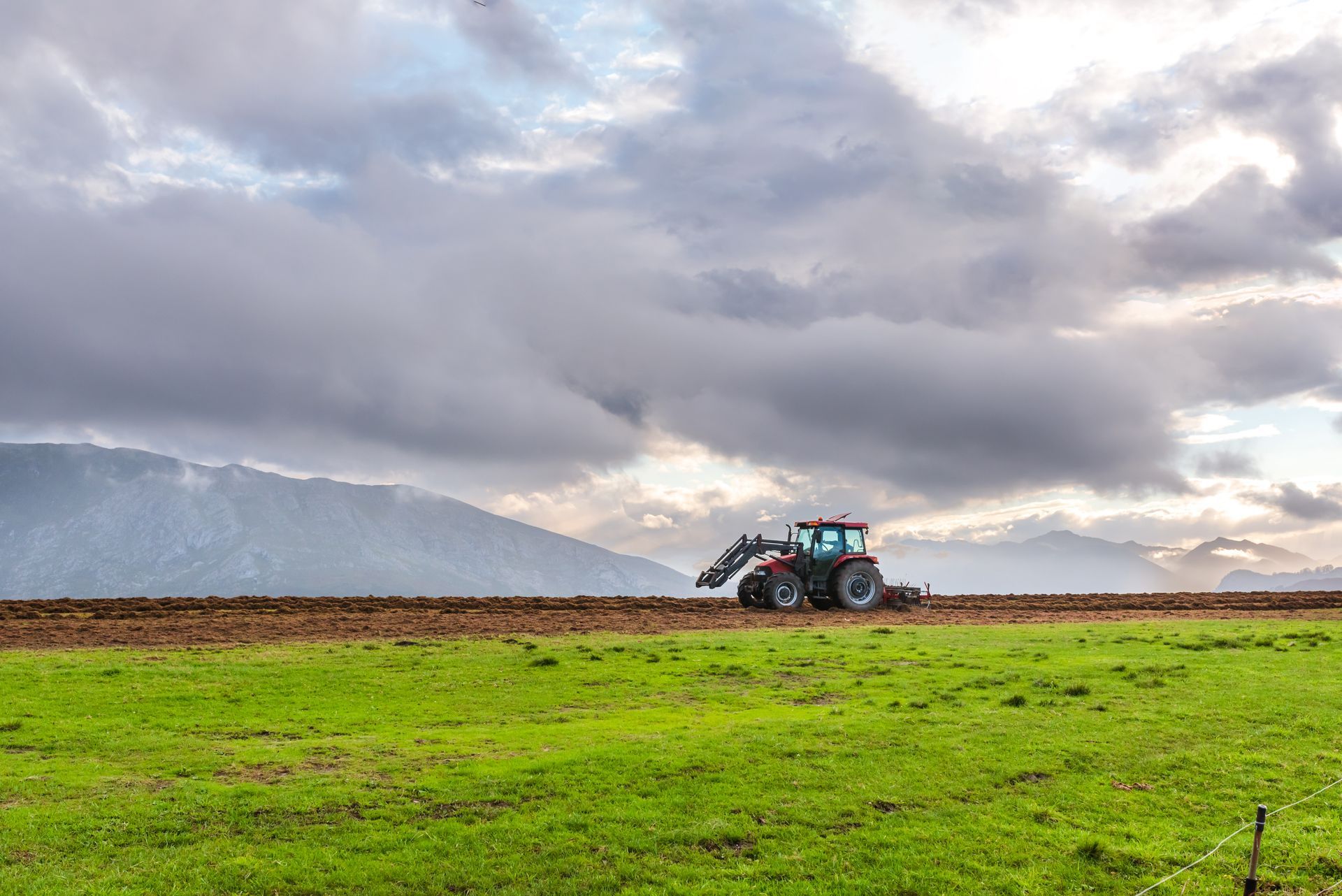
By Katie Schupp
•
February 14, 2025
Sustainable agriculture is more than a trend; it's a necessity for ensuring the long-term health of our planet and the viability of our food systems. Richland Micro Drainage recognizes the importance of sustainable farming practices and offers micro drainage solutions that help farmers protect their land, conserve resources, and improve soil health for generations to come. Micro Drainage: A Key Component of Sustainable Farming Practices Micro drainage plays a crucial role in sustainable agriculture by optimizing water management and promoting soil health. By efficiently removing excess water from the soil, micro drainage systems prevent water logging, erosion, and nutrient loss, preserving the valuable topsoil that is essential for long-term productivity. Benefits of Micro Drainage for Sustainable Agriculture Improved Soil Health: Healthy soil is the foundation of sustainable agriculture. Micro drainage enhances soil health by promoting aeration, preventing compaction, and fostering a thriving ecosystem of beneficial microorganisms. Reduced Water Use: Efficient drainage minimizes the need for excessive irrigation, conserving water resources, and reducing energy consumption. Minimized Environmental Impact: By preventing erosion and nutrient runoff, micro drainage helps protect water quality and preserve the natural environment. Increased Crop Yields: Healthy soil and optimal water management lead to healthier crops and increased yields, contributing to the economic viability of sustainable farming practices. Preserving Land for Future Generations One of the most significant benefits of sustainable agriculture is its ability to preserve farmland for future generations. By adopting practices that protect and enhance soil health, farmers ensure that their land remains productive and fertile for years to come. Micro drainage plays a vital role in this preservation effort by preventing soil degradation and promoting long-term soil health. This ensures that future generations will have access to the resources they need to continue farming and producing food sustainably. Richland Micro Drainage: Your Partner in Sustainable Agriculture Richland Micro Drainage is committed to supporting farmers in their pursuit of sustainable agriculture. Our micro drainage solutions are designed to optimize water management, enhance soil health, and contribute to the long-term viability of your farming operation. Contact us today to learn more about how micro drainage helps you implement sustainable farming practices and preserve your land for years to come. We are farmers helping farmers preserve their land for the next generation.
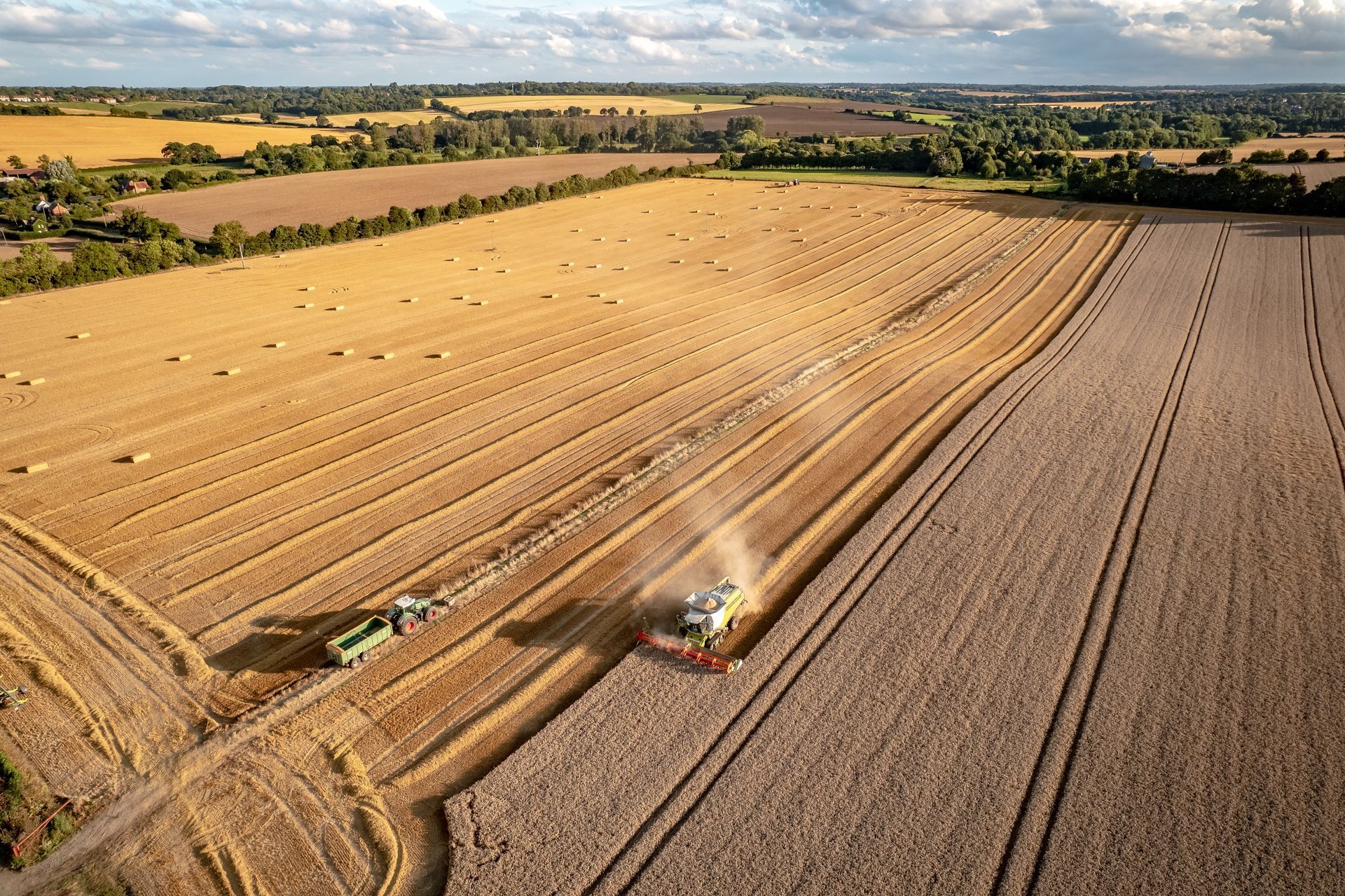
By Katie Schupp
•
February 7, 2025
Conventional farming practices often rely on tillage and other intensive methods to manage soil and maximize yields. However, these practices sometimes lead to soil compaction, erosion, and nutrient loss. Richland Micro Drainage offers micro drainage systems that seamlessly integrate with conventional farming, enhancing soil health and improving overall farm productivity. How to Implement Micro Drainage in Conventional Farming Implementing micro drainage in conventional farming involves strategically installing a network of small-diameter drain tiles beneath the soil surface. These tiles create pathways for excess water to drain away, preventing water logging and promoting optimal soil conditions. Here's how Richland Micro Drainage helps you implement micro drainage on your conventional farm: Assessment and Design: Our team of experts will assess your land, considering factors such as soil type, topography, and cropping patterns, to design a customized micro drainage system that meets your specific needs. Installation: We utilize specialized equipment and techniques to install the drain tiles with minimal disruption to your existing field operations. Integration with Conventional Practices: Our micro drainage systems are designed to complement your conventional farming practices, working seamlessly with tillage and other soil management techniques. Improving Soil Health in Conventional Agriculture Micro drainage offers numerous benefits for soil health in conventional agriculture: Reduced Compaction: By preventing water logging, micro drainage helps to alleviate soil compaction, improving aeration and promoting better root development. Enhanced Nutrient Retention: Efficient drainage minimizes nutrient loss due to leaching, ensuring that essential nutrients remain in the root zone where they can be readily accessed by crops. Increased Organic Matter: Improved soil health promotes the growth of beneficial microorganisms, which contribute to the breakdown of organic matter and enhance soil fertility. Reap the Benefits of Micro Drainage Implementing micro drainage systems on your conventional farm leads to: Increased Crop Yields: Healthier soil leads to healthier crops and increased yields, boosting your farm's productivity and profitability. Reduced Input Costs: Improved drainage reduces the need for excessive irrigation and fertilizer applications, saving you money on inputs. Enhanced Sustainability: Micro drainage promotes sustainable farming practices by optimizing water use and minimizing environmental impact. Richland Micro Drainage: Your Partner in Conventional Farming Success Richland Micro Drainage understands the unique needs of conventional farmers. Our micro drainage systems are designed to integrate seamlessly with your existing practices, enhancing soil health, improving yields, and contributing to the long-term sustainability of your operation. Contact us today to learn more about how micro drainage benefits your conventional farm practices and discover how we help you achieve your agricultural goals.
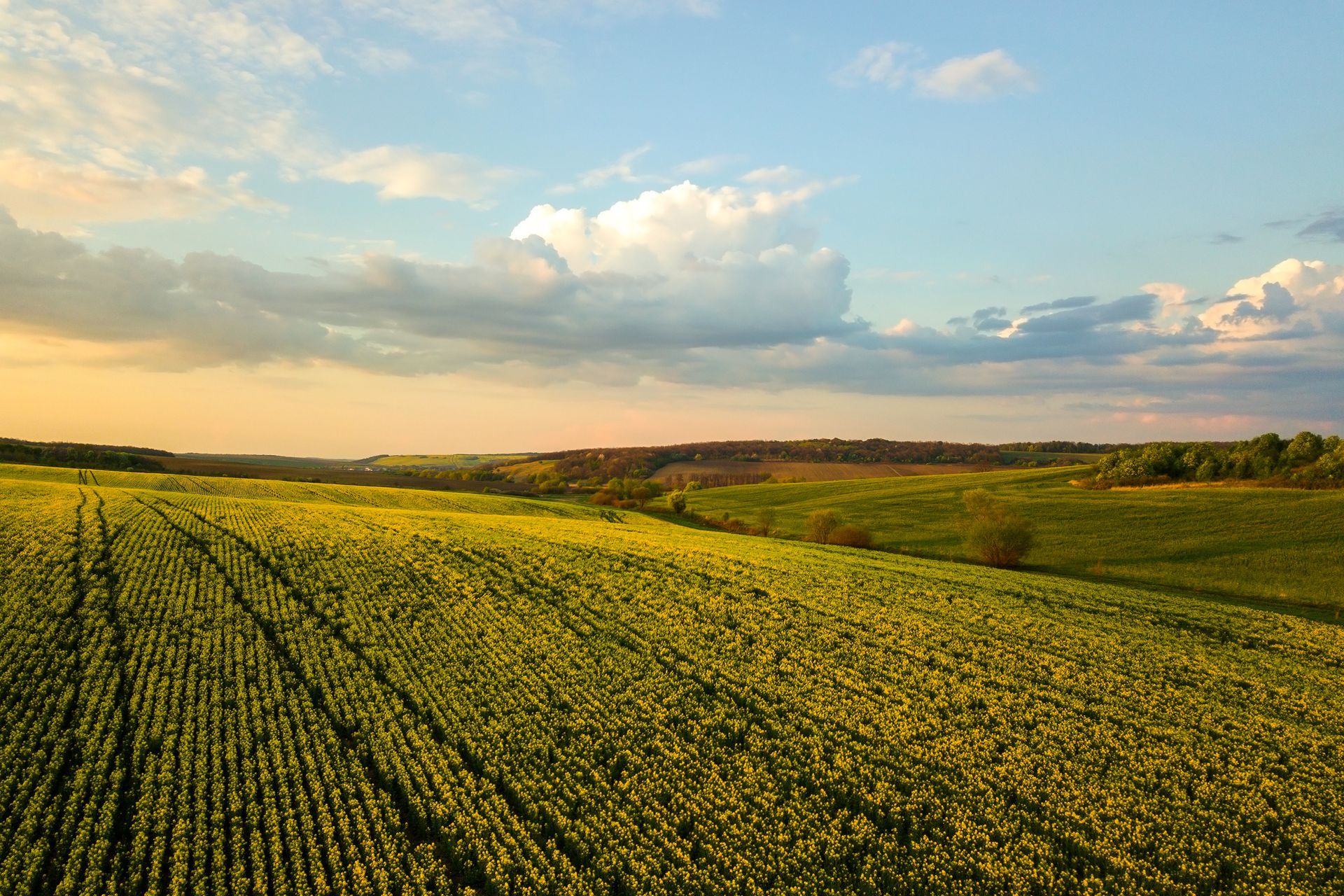
By Katie Schupp
•
January 31, 2025
Efficient water management is crucial for successful farming, and Richland Micro Drainage understands that access to expert installation and support is key. That's why we've built a nationwide network of skilled and certified contractors, ready to bring the benefits of our micro drainage solutions to your fields, no matter where you're located. Micro Drainage Solutions: A Nationwide Network of Expertise From Ohio to Missouri, Pennsylvania to Wisconsin, and even New York, our contractors are strategically located across various regions to ensure convenient access to our innovative drainage solutions. Whether you're a traditional farmer, embrace no-till practices, or specialize in strip-till, we have a contractor near you equipped to transform your land and maximize your yields. Why Choose Richland Micro Drainage Solutions? Our micro drainage systems offer a unique approach to water management, utilizing smaller diameter pipes and closer lateral spacing to optimize drainage efficiency. This results in: Improved Soil Health: By preventing water logging and promoting aeration, micro drainage fosters a thriving soil ecosystem, leading to healthier crops and increased yields. Reduced Erosion: Efficient drainage minimizes the risk of soil erosion, protecting valuable topsoil and preventing nutrient runoff. Enhanced Sustainability: Micro drainage promotes sustainable farming practices by optimizing water use and reducing the need for excessive irrigation. Connect with a Richland Micro Drainage Contractor Today Our contractors are not just installers. They are knowledgeable partners who assess your land, design a customized drainage system, and ensure proper installation for optimal performance. They understand the unique challenges of your region and tailor solutions to your specific needs and farming practices. Don't let water management challenges hinder your farm's potential. Find a Richland Micro Drainage contractor near you and experience the transformative power of our micro drainage solutions. Here are just a few of our valued partners: Ohio: Green Acres Farm (Peebles), Hickory Valley Tiling (Shreve), Precision Micro Drainage (Shelby), Van Pelt Farms (Columbiana). Miller’s Farm Drainage (Middlefield) Pennsylvania: Dirt Scape LLC (Greenville). Wisconsin: Millers Excavating & Field Drainage LLC (Spencer) New York: Wadsworth General Contracting (Palatine Bridge). Missouri: Rutledge Drainage (Rutledge). Invest in Your Farm's Future Richland Micro Drainage is committed to empowering farmers with the tools and expertise they need to succeed. Our nationwide network of contractors ensures that no matter where you're located, you have access to our innovative drainage solutions and the support you need to optimize your water management and achieve your farming goals.
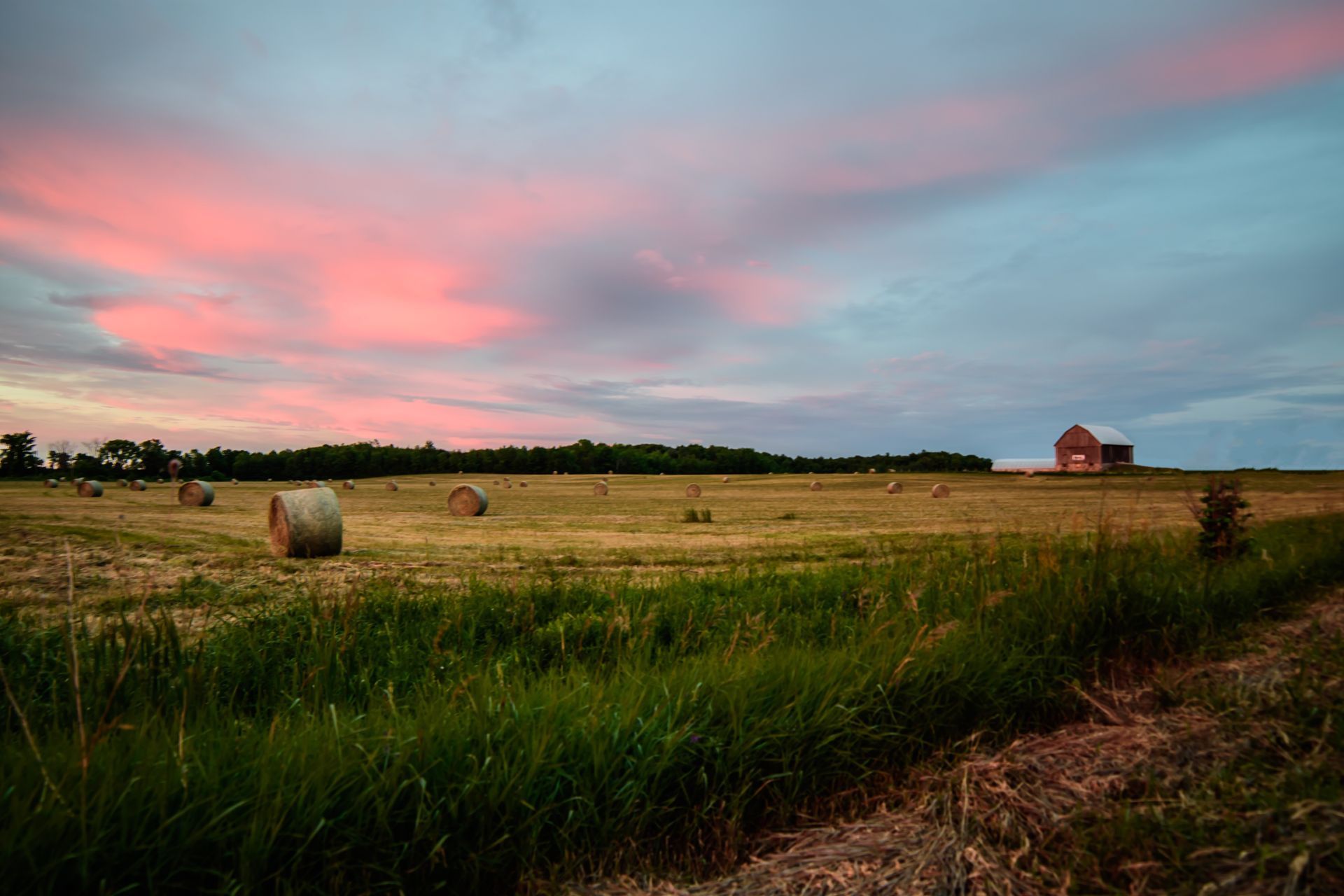
By Katie Schupp
•
January 24, 2025
Investing in your farm's infrastructure is crucial for long-term profitability and sustainability. Richland Micro Drainage (RMD) understands the importance of maximizing your return on investment, and our micro drainage systems offer a compelling financial case for farmers seeking to optimize their operations. Here are the top 4 financial benefits of using RMD micro drainage systems: 1. Increased Crop Yields and Quality One of the most significant financial benefits of micro drainage is its direct impact on crop yields and quality. By efficiently removing excess water from the root zone, micro drainage systems create an optimal soil environment for plant growth. This leads to healthier, more vigorous crops that produce higher yields and superior quality, translating to increased revenue and profitability. 2. Reduced Input Costs Micro drainage systems contribute to significant cost savings by optimizing resource utilization. With improved water management, you reduce the need for excessive irrigation, saving money on water bills and energy consumption. Additionally, efficient drainage minimizes nutrient leaching, allowing you to optimize fertilizer applications and reduce unnecessary expenses. 3. Enhanced Land Value Installing a micro drainage system significantly enhances the value of your farmland. Well-drained land is more productive, easier to manage, and less susceptible to erosion and other environmental challenges. These factors make your property more attractive to potential buyers, increasing its market value and providing a strong return on your investment. 4. Long-Term Sustainability and Reduced Risk Micro drainage promotes sustainable farming practices by optimizing water use and minimizing environmental impact. This contributes to the long-term health and productivity of your land, ensuring that it remains a valuable asset for generations to come. Moreover, efficient drainage reduces the risk of crop losses due to water damage, providing a more stable and predictable income stream. Richland Micro Drainage: Your Partner in Agricultural Success Richland Micro Drainage specializes in micro drainage solutions tailored to your farm's unique needs. Our team of experts assess your land, design a customized system, and ensure proper installation for optimal performance and longevity. Our micro drainage systems utilize strategically placed drain tiles to efficiently remove excess water from the root zone, promoting healthy soil conditions and maximizing crop yields. We also offer surface drainage solutions to manage excess water on the surface, preventing erosion and protecting your valuable topsoil. Reap the Financial Benefits of Micro Drainage Don't let water management challenges hinder your farm's financial success. Contact Richland Micro Drainage today to learn more about the financial benefits of micro drainage in agriculture and discover how our solutions help you achieve long-term profitability and sustainability.
